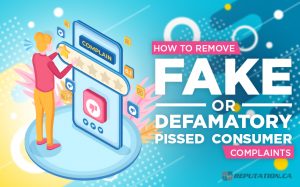Introduction:
Online evaluations are becoming a crucial component of customer decision-making since they provide insightful information about the caliber and reputation of companies. But the proliferation of malicious lies, cyberbullying, defamation, and bogus reviews has brought up difficult legal issues regarding the limits of free expression and First Amendment rights. Even though these methods can definitely hurt businesses, managing the nuances of this digital ecosystem requires an awareness of the legal framework around online reviews.
Evaluate Business Reviews as Proper Speech:
Online reviews are protected speech under the First Amendment, regardless of where they are published—on social media, Yelp, Google, or other websites. Individuals therefore possess the right to voice their thoughts and experiences, regardless of whether such thoughts are unfavorable or disparaging of a company.
False Evaluations and Rival Intervention:
- A company’s reputation can be harmed and customer trust undermined by fake reviews, which are frequently written by rival businesses or others with ill intentions. Even though these kinds of actions can be considered unfair competition and deceptive marketing strategies, they might still be covered by the First Amendment.
- Courts have always been reluctant to hold fake reviews accountable unless they cross the threshold into fraud or defamation. Moreover, digital platforms are not held accountable for user-generated content under Section 230 of the Communications Decency Act, which makes it more challenging to hold them accountable for publishing fake evaluations.
Falsehoods and Defamation
- In the world of internet reviews, defamatory statements—including false representations of fact—that damage a company’s reputation present serious legal difficulties. Although the First Amendment typically protects opinions, defamation actions may arise from false statements of fact made with deliberate intent or careless disregard for the truth.
- But establishing defamation in the context of internet reviews can be difficult, especially when dealing with reviewers who use pseudonyms or anonymity. Courts have frequently mandated that companies prove actual harm to their reputation and fulfill a strict bar of proof.
Malice from rivals and fake reviews:
Businesses occasionally have to deal with hostile competitors who post phony reviews. Even while these reviews could be damaging, they aren’t always unlawful unless they make false claims or contain defamatory material. However, it can be difficult to establish the reviewer’s identity and motive, which makes taking legal action difficult.
Harassment and Cyberbullying
- Another legal murky area in the world of online reviews is cyberbullying, which includes hostile or harassing evaluations directed at people connected to a company. Although the First Amendment guarantees the freedom to voice thoughts and concerns, it does not absolve people of responsibility for harassing others or purposefully causing them mental suffering.
- Entrepreneurs who fall prey to cyberbullying can take legal action against their attackers through civil harassment statutes or by requesting that defamatory content be taken down. Nevertheless, negotiating the legal system can be difficult and time-consuming.
- A further challenging problem is cyberbullying, which is the use of electronic communication to harass or threaten people. Freedom of expression is safeguarded by the First Amendment, but harassing or threatening behavior does not escape legal consequences. Cyberbullying may be considered criminal activity in very extreme situations.
Keeping Rights and Responsibilities in Balance
The need to stop harm from defamation, cyberbullying, and fraudulent reviews must be weighed with the First Amendment’s protection of free speech. People are entitled to voice their ideas, but they also have a responsibility to use that privilege in a morally and responsibly manner.
Rules for the Platform and Moderation
Internet platforms are essential for controlling user-generated content and eliminating malicious or false reviews. A lot of platforms have policies in place to deal with cyberbullying, defamation, and fraudulent reviews. These policies often include ways to report and delete offensive information.
Encouraging Openness and Genuineness
Authenticity and openness are crucial in the era of online reviews. Companies can build credibility and trust by requesting honest feedback from clients, handling criticism with professionalism and promptness, and proactively resolving valid problems.
In conclusion
Online evaluations are very important for influencing customer opinions and promoting company success, but they also pose legal issues for free speech, defamation, and cyberbullying. Navigating the digital marketplace as a business or consumer requires an understanding of the subtleties surrounding First Amendment protections.
Businesses are not helpless when it comes to dealing with defamation, cyberbullying, and bogus reviews. Legal options for obtaining retribution and preserving reputation include defamation lawsuits, injunctions, and civil harassment statutes.










